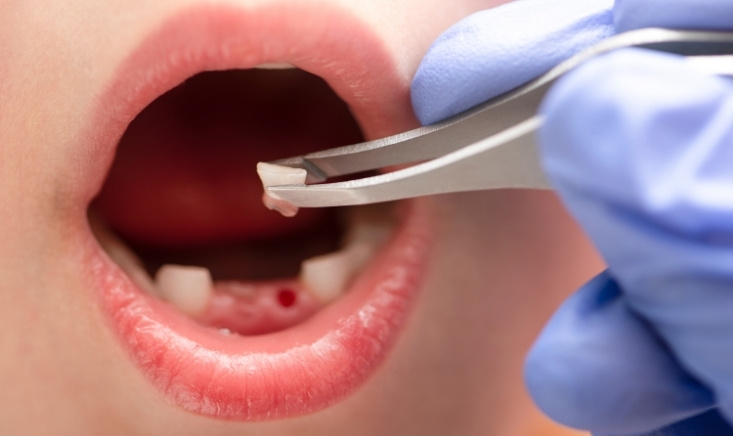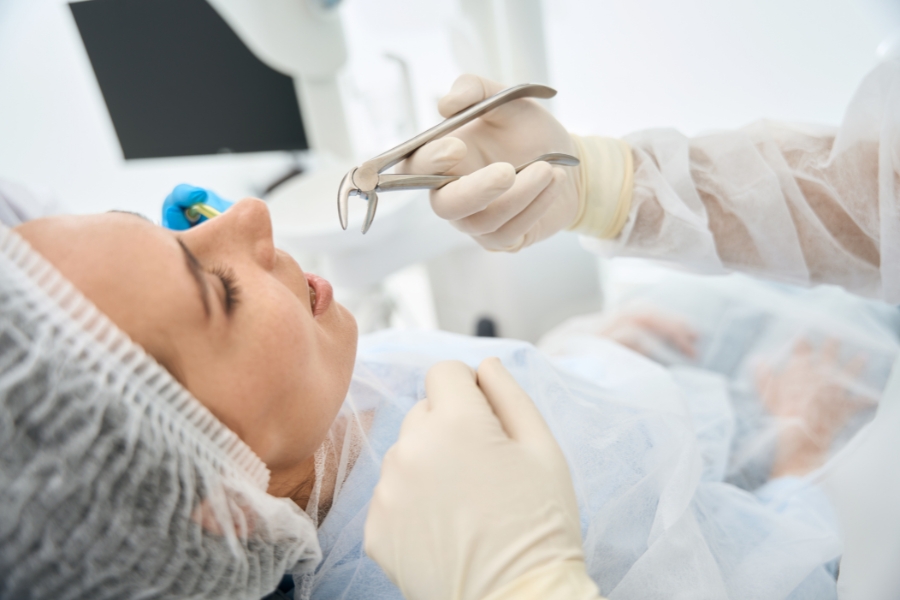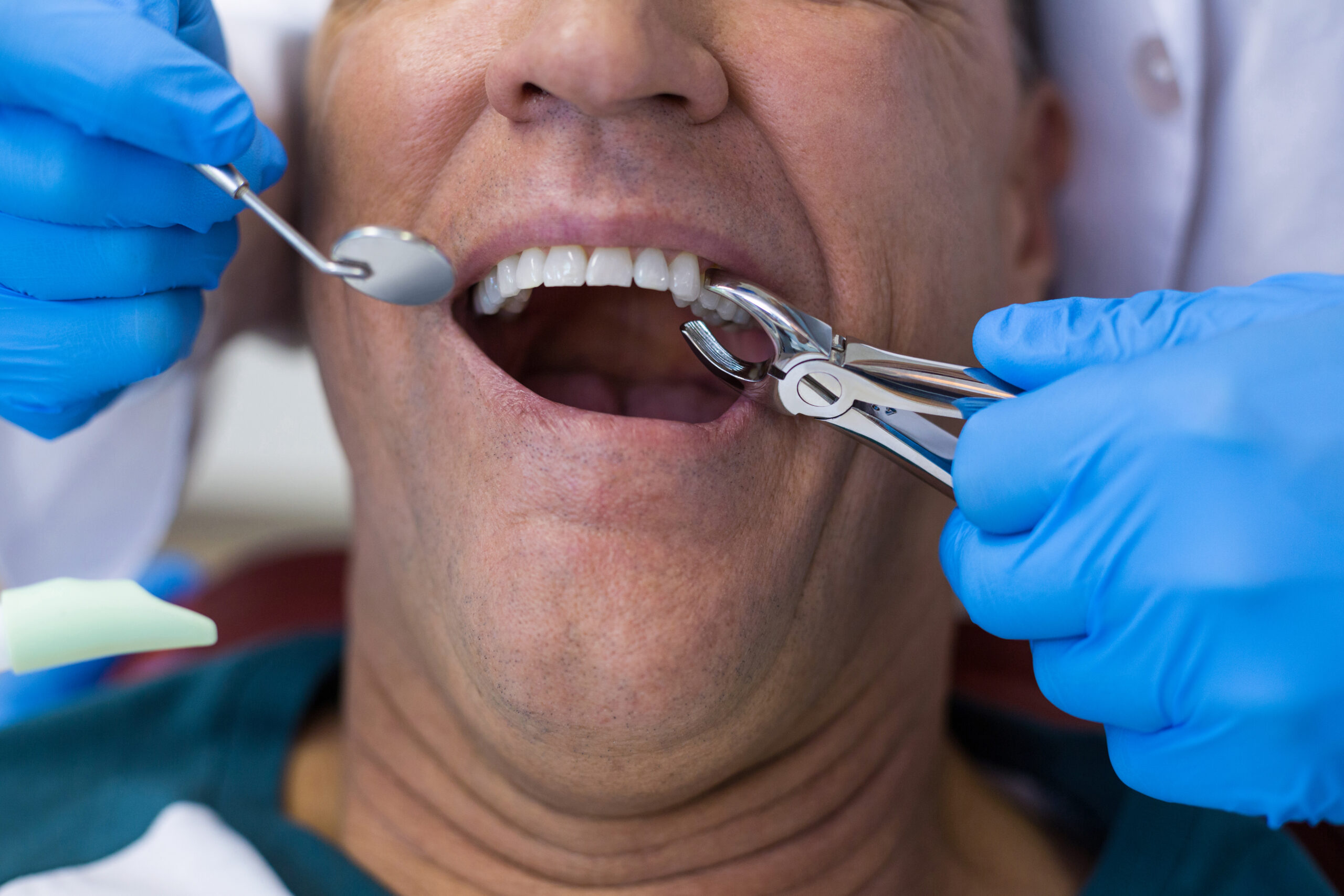Should You Take Antibiotics after Tooth Extraction?

Tooth extraction is a common oral treatment. The procedure is relatively simple, and recovery is also easy if you adhere to the right aftercare regimen. Nonetheless, one thing all patients ask is whether or not to take antibiotics after an extraction.
Well, the remedy of antibiotics is not for all. There are times when dentists prescribe antibiotics, but that strictly depends on a thorough examination of the patient. Not all patients require antibiotics following tooth extraction. So, under what circumstances would one really require it? Let’s get into the facts.
Why Are Tooth Extractions Sometimes Followed by Antibiotics?
Antibiotics are best for preventing infection in the patient’s body. This is very relevant when the patient’s body is not able to heal itself after a tooth extraction. If you have a high risk of infection due to any medical condition, your dentist is more likely to prescribe you an antibiotic.
Unlike over-the-counter medication, antibiotics are not always the go-to choice in all situations. Your dentist will weigh your risk factors in determining whether to prescribe them.
When Do You Require Antibiotics Following an Extraction?
You may require antibiotics if you have a weakened immune system. These are:
- Visible infection signs at the extraction site in the past.
- Surgical or challenging extractions, such as impacted wisdom teeth.
- Poor immune condition, such as diabetic patients, cancer patients, or autoimmune disease.
- Bone grafting or sinus lifts are done during the same appointment as the extraction.
- History of cardiac disease requiring antibiotic prophylaxis (based on your doctor or AHA)
If any of the above is your situation, antibiotics could be the answer to your problem.
When Do You Not Need Antibiotics?
Most patients undergoing an extraction won’t need antibiotics. Your body will do quite well with proper aftercare and good oral hygiene.
In fact, unnecessary antibiotic use can cause more harm than good. It can:
- Contribute to antibiotic resistance in your body (making it harder for future infections to be cured)
- Causes side effects like stomach upset or allergy
- Harm your gut microbiome, weakening your health as a whole
When your dentist does not prescribe you antibiotics, it is because they believe that your body will heal itself.
What to Ask Your Dentist Before Taking Antibiotics?
An open discussion with your dentist will help you stay on the right track with your recovery. For that, you need to know what questions to ask your dentist.
- Do you need antibiotics after the tooth is removed?
- Is there a risk if you don’t take them?
- What are the types of side effects that you should watch out for in case you take them?
The better you understand your care plan, the easier your recovery will be.
Warning Signs of Infection to Monitor
In some instances, you do not require antibiotics initially. But due to some signs, your dentist becomes compelled to give them later.
So, be cautious of:
- Increased or persistent pain after the third day.
- Increased swelling, not decreased.
- Bad odor, taste, or pus from the socket.
- Fever or chills.
- Redness extending beyond the area where the tooth was extracted.
These symptoms can indicate an infection that needs to be treated immediately, and that’s when antibiotics might be needed.
Antibiotics following tooth extraction are not always necessary, but you might need them under some conditions. Your dentist will prescribe them to you if there is a high chance of infection. Trust them, listen well to the post-extraction instructions, and don’t hesitate to call if anything seems off.




